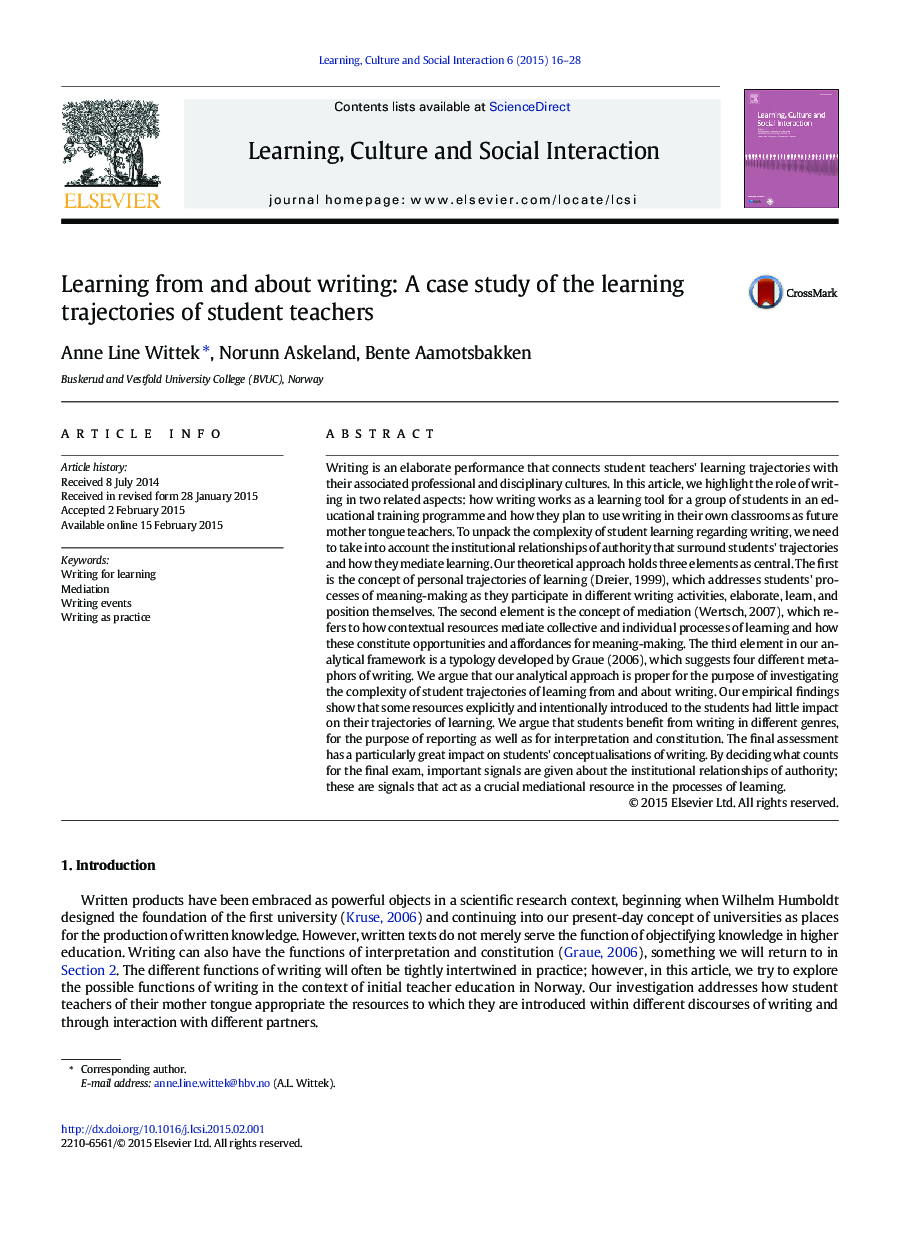| Article ID | Journal | Published Year | Pages | File Type |
|---|---|---|---|---|
| 364383 | Learning, Culture and Social Interaction | 2015 | 13 Pages |
Writing is an elaborate performance that connects student teachers' learning trajectories with their associated professional and disciplinary cultures. In this article, we highlight the role of writing in two related aspects: how writing works as a learning tool for a group of students in an educational training programme and how they plan to use writing in their own classrooms as future mother tongue teachers. To unpack the complexity of student learning regarding writing, we need to take into account the institutional relationships of authority that surround students' trajectories and how they mediate learning. Our theoretical approach holds three elements as central. The first is the concept of personal trajectories of learning (Dreier, 1999), which addresses students' processes of meaning-making as they participate in different writing activities, elaborate, learn, and position themselves. The second element is the concept of mediation (Wertsch, 2007), which refers to how contextual resources mediate collective and individual processes of learning and how these constitute opportunities and affordances for meaning-making. The third element in our analytical framework is a typology developed by Graue (2006), which suggests four different metaphors of writing. We argue that our analytical approach is proper for the purpose of investigating the complexity of student trajectories of learning from and about writing. Our empirical findings show that some resources explicitly and intentionally introduced to the students had little impact on their trajectories of learning. We argue that students benefit from writing in different genres, for the purpose of reporting as well as for interpretation and constitution. The final assessment has a particularly great impact on students' conceptualisations of writing. By deciding what counts for the final exam, important signals are given about the institutional relationships of authority; these are signals that act as a crucial mediational resource in the processes of learning.
